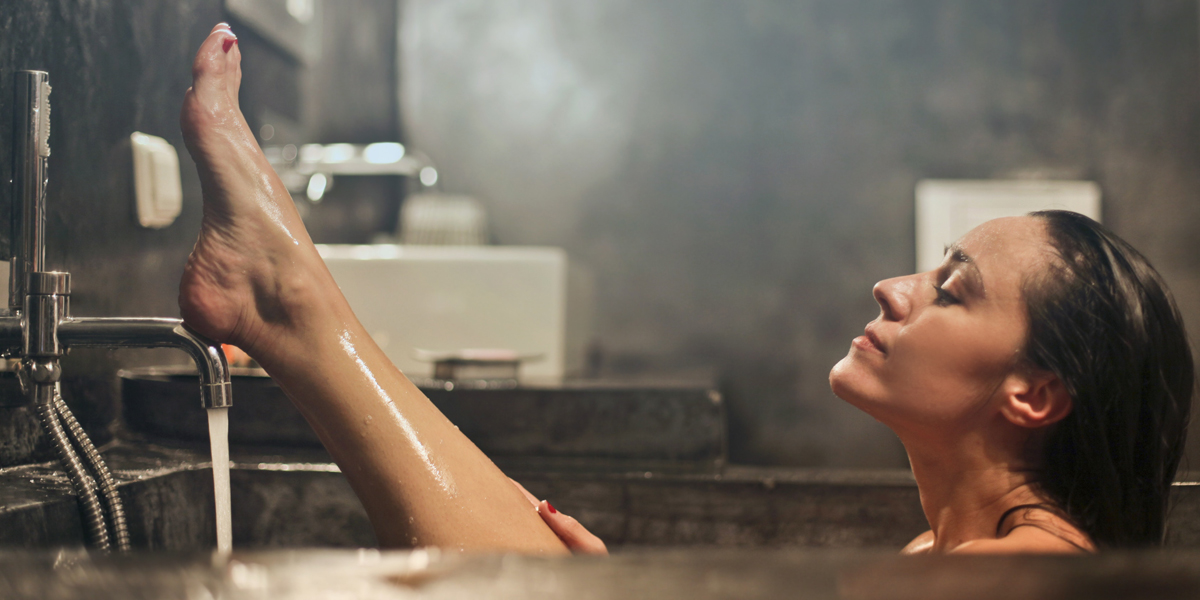Time to Relax
One of the strangest phenomena of the past two years was how quickly daily life was brought to a grinding halt. No longer were we waking early to make our daily commute into a noisy office. Instead, seconds dragged into minutes, then hours, days, and months. We had more time than ever before on our hands without the daily office grind, social events, gym workouts and hopping onboard a plane to far flung destinations, life became mentally draining.
Silencing the mind is one of life’s greatest pleasures, and yet one of the most difficult to achieve. Cocooned at home, we came to realise the importance of self-care, and how practicing simple daily rituals can make a big difference.
Mckinsey has estimated that the global wellness market is worth more than $1.5 trillion and it is growing at an annual growth of 5 to 10 percent, driven by products and services. The wellness sector comprises of beauty, fitness, nutrition, preventative and complementary medicine, wellness tourism and spa.
No longer is the spa industry centred around pure pampering, instead this has extended to address ways in which to create a balance between the mind, body, and soul. In years gone by the spa was thought to be a place to retreat to, sometimes considered more of a ‘luxury experience’. Somewhere to visit for massages, pedicures, manicures, steam baths and facials.
Spas are now designed to also address health and wellbeing, from the inside out through wellness resorts, laughter therapy, hypnosis, thermae, thalassos, medispas and health clinics, focusing on helping consumers to achieve
- Improved health, nutrition, and fitness
- Better sleep and mindfulness
- Optimum wellbeing
Experiences are as important as the products and services, and some of these experiences begin in the comfort of the home, before even booking into a spa. It is interesting to see the growth in holistic, alternative therapies, some of which we would never have expected to see associated with spas before.

Digital Detoxing
Having the ability to communicate with anyone, anytime, anywhere has many advantages, equally it means it is very difficult to switch off. One of the key learnings during the pandemic was the importance of controlling out daily habits through setting boundaries. Constantly working online and checking social media accounts and messages doesn’t bode well for mental or physical wellbeing. Taking more time to connect with nature and creativity is essential for relaxation.
Getting out into nature, has proven to be a successful way in which to manage stress. Spas of the future are looking to incorporate more natural features, from nature trails to wild nature therapy and outdoor massages.
Mindfulness, yoga, meditation
Chinese medicine and ayurvedic methods have become increasingly more popular due to the holistic way in which they provide balance to the mind and body. They address the source of stress, rather than just the symptoms, and therapies such as acupuncture, reflexology, meditation, mindfulness, and yoga are as sought after as massage and facials.
According to the Global Wellness Institute, the size of the mental wellness market outweighs spas, at $121 billion. Workshops, treatments, and apps are now designed to provide mindfulness practices to ensure we achieve better sleep, to help us to become more focused through meditation and to promote supplements that support improved brain health.

Talking and Walking Therapies
No longer confined to the sofa, we are heading outdoors to engage during therapy sessions. Telehealth continues to grow, through walking and talking sessions, with people taking to nature trails, beaches, and the road. Not only does this help our state of mind, but it also makes us feel more connected to nature, providing a sense of tranquillity.
Combining wellness, fitness and nutrition has meant spas are now introducing the services of osteopaths, fitness coaches, relaxologists, naturopaths and psychologists to help manage stress, achieve emotional balance, and improve sleep.
Wellness Retreats
Wellness is not confined to the spa and can be seamlessly incorporated into a travel agenda. Now that travel is becoming a more viable option, we are seeking out experts, experiences, and more unusual destinations to retreat to. Some of us are seeking out travel destinations that support us with healthy eating goals, whilst others are looking to the guidance of a spiritualist to gain greater clarity and focus in our lives.
Hotels, like the Ritz Carton in Vienna in Austria, are introducing some interesting innovations into guests’ rooms like sleep-inducting acupressure point cards whilst the Entre Cielos Luxury Wine Hotel and Spa in Argentina offers touchless guided walks, using QR codes to provide information on award winning gardens of native plants. In Norway, the Farris Bad Spa, uses the healing properties of its water springs, where their best-selling mineral water is sourced from.
Over 30% of us are said to suffer from insomnia. The Amangiri Resort in the Utah desert recently introduced a sleep retreat, offering holistic spa therapies to address mental and emotional wellbeing, to induce better sleep.
Diet
Veganism has seen a significant growth, in the UK alone we have experienced a growth of over 400% in the past two years. Aside from veganism there has also been a growing interest in pescatarian, vegetarian, paleo, and plant-based diets.
Spas are now introducing health menus designed by nutritionists to address allergies and poor eating habits, with people becoming more interested in immune-boosting eating habits. Products promoting gut health and those that support the gut microbiome have also grown in popularity.

Low touch Treatments and Femtech
With concerns about personal contact, it is no surprise that we are seeking out treatments that involve minimal touch – such as halotherapy rooms, cryotherapy, LED therapies, flotation and sauna and wet areas.
Sexual wellness is also a growing sector, particularly femtech, with services including fertility health, pre- and post-menopausal treatments, as women feel the need to become more empowered about their health and wellbeing.
It is clear to see that the future of spas is about achieving inner and outer balance, through health, wellbeing, fitness, and nutrition. Spas of the future are a sanctuary to relax, restore and refocus.
If you would like to develop a beauty brand for your spa or hotel and are looking for support and expertise, get in touch – janet@janetmilnerwalker.com




